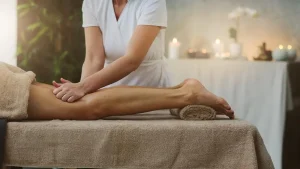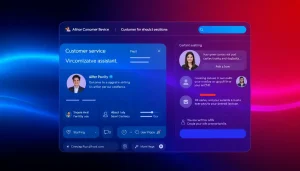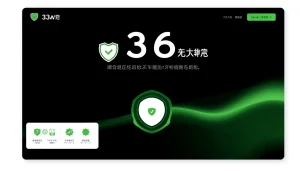Effective Strategies for Dealing with Anxiety: Tips for Managing Your Mental Health
Understanding Anxiety and Its Impact
What is Anxiety?
Anxiety is a natural response of the body that occurs when faced with stress or uncertainty. It manifests as a feeling of apprehension or worry regarding future events or situations. While some levels of anxiety can be beneficial, such as motivating individuals to prepare for an important presentation or exam, excessive anxiety can become debilitating. According to the National Institute of Mental Health, anxiety disorders affect 19.1% of adults in the U.S. in a given year, highlighting the significance of understanding and addressing this widespread issue.
Common Symptoms of Anxiety
The symptoms of anxiety can vary significantly from person to person but often include physical, emotional, and behavioral indicators. Common symptoms include:
- Constant feelings of dread or impending doom
- Increased heart rate or palpitations
- Difficulty concentrating or your mind going blank
- Restlessness or feeling on edge
- Excessive worrying about various aspects of life
- Physical symptoms such as muscle tension, headaches, or gastrointestinal issues
Recognizing these symptoms is crucial, as it can help individuals seek the necessary help and coping strategies early on.
The Importance of Addressing Anxiety
Failure to address anxiety can lead to a host of psychological and physical health issues, including depression, substance abuse, and chronic health conditions. It can significantly impair performance in both personal and professional settings. Therefore, knowing how to effectively cope with anxiety is vital. Seeking resources, such as dealing with anxiety guidance, can make a positive difference in managing anxiety effectively.
Practical Techniques for Dealing with Anxiety
Relaxation Techniques
Relaxation techniques can be incredibly effective in managing anxiety. These methods help reduce the physiological symptoms of anxiety and promote a sense of calm. Some widely used relaxation techniques include:
- Progressive Muscle Relaxation: This technique involves systematically tensing and relaxing different muscle groups in the body, helping to alleviate physical tension.
- Visualization: Using mental imagery, individuals can visualize peaceful settings or experiences to help distract from anxious thoughts.
- Guided Imagery: This method often involves listening to a recording that describes a relaxing scenario, allowing the mind to distract itself from sources of anxiety.
- Yoga and Tai Chi: Both are forms of physical activity that combine movement, meditation, and breathing, making them effective for relaxation and overall well-being.
Incorporating these techniques into your daily routine can create a buffer against anxiety triggers.
Physical Activity as a Coping Mechanism
Engaging in regular physical activity is one of the most beneficial strategies to combat anxiety. Exercise releases endorphins, which are natural mood lifters. Additionally, it helps to reduce levels of the body’s stress hormones, such as adrenaline and cortisol. Here are some tips for incorporating physical activity into your routine:
- Find an Activity You Enjoy: Whether it’s jogging, swimming, or dancing, choosing an activity you like increases the likelihood of consistency.
- Aim for Regularity: Experts recommend at least 150 minutes of moderate aerobic activity each week, which can be broken down into manageable sessions.
- Mix it Up: Adding variety to your workouts can keep you motivated and engaged. Include strength training, flexibility exercises, and cardiovascular activities.
By making physical activity a regular part of your schedule, you create a potent tool against anxiety.
Mindfulness and Breathing Exercises
Practicing mindfulness and breathing exercises can be transformative for managing anxiety. Being mindful means focusing on the present moment and accepting it without judgment. Studies show mindfulness can effectively reduce symptoms of anxiety disorders. Here are some simple exercises:
- Deep Breathing: Inhale deeply through your nose for four counts, hold for four counts, and exhale slowly for six counts. Repeat until you feel your anxiety diminish.
- Mindful Observation: Take a moment to focus on an object in your environment. Observe its details, colors, and textures without letting your mind wander.
- Body Scan: Lie down comfortably and mentally scan your body from head to toe, noting any tension, and consciously relax those areas one by one.
Consistent practice of mindfulness can significantly enhance your ability to manage anxiety responses.
Creating a Supportive Environment
Building a Support Network
Anxiety can often feel isolating, but having a strong support network is crucial. Building relationships with friends, family, or support groups can provide encouragement. Here are strategies to establish this network:
- Open Communication: Be transparent with your close ones about your anxiety struggles. This openness can create more supportive interactions.
- Join Support Groups: Connecting with others who share similar experiences can provide comfort and new coping strategies.
- Seek Professional Help: Therapists or counselors can provide a professional perspective and techniques for managing anxiety.
A solid support network contributes significantly to overcoming challenges associated with anxiety.
Communicating Your Needs
To effectively deal with anxiety, it is crucial to communicate your needs both to yourself and to those around you. Identify what support you require and express it clearly. Here’s how to enhance your communication skills regarding your anxiety:
- Practice Assertiveness: Communicate your feelings without being aggressive. Use “I” statements, such as “I feel anxious when…” to articulate your concerns.
- Share Coping Strategies: Let your circle know what strategies help you; this enhances understanding and can garner support from them.
- Set Up Regular Check-Ins: Regularly talking about your mental health with a trusted individual can keep your anxiety in check and facilitate timely interventions when needed.
Effective communication fosters stronger relationships and enables better management of anxiety.
Setting Healthy Boundaries
Establishing healthy boundaries is vital to protect your emotional space. When overwhelmed with anxiety, knowing when to decline additional responsibilities or social engagements can maintain your well-being. Here are tips for setting boundaries:
- Learn to Say No: It’s okay to turn down invitations or requests that feel like too much.
- Prioritize Self-Care: Allocate time for relaxation, hobbies, or simply being alone to recharge.
- Define Your Limits: Know your limits regarding work, personal commitments, and social obligations to avoid burnout.
Setting boundaries creates a necessary buffer, allowing you to focus on self-care and anxiety management.
Therapeutic Approaches to Managing Anxiety
Cognitive Behavioral Therapy (CBT)
Cognitive Behavioral Therapy is one of the most effective therapeutic approaches for anxiety disorders. It focuses on identifying and changing negative thought patterns and behaviors associated with anxiety. Key components of CBT include:
- Recognizing Negative Thoughts: Individuals learn to notice and challenge distorted thinking that exacerbates anxiety.
- Developing Coping Strategies: CBT equips individuals with practical skills to deal with anxiety-inducing situations effectively.
- Gradual Exposure: Patients are gradually exposed to the sources of their anxiety in a controlled manner to reduce sensitivity to those triggers.
With regular sessions, CBT has been shown to be effective in reducing anxiety symptoms and enhancing coping mechanisms.
Medication Options
For some individuals, medication may be necessary to manage anxiety. Various medication options may be discussed with a healthcare provider, including:
- Antidepressants: These can help improve mood and anxiety by increasing the level of neurotransmitters in the brain.
- Benzodiazepines: These are fast-acting medications that may be prescribed for short-term relief of acute anxiety symptoms.
- Buspirone: This is an anti-anxiety medication that works differently from benzodiazepines and may be suitable for long-term management.
Consulting a healthcare professional is crucial for discussing the potential risks, benefits, and suitable treatment plans personalized to an individual’s needs.
Alternative Therapies
Alternative therapies can complement traditional treatments for anxiety. These may include:
- Acupuncture: This traditional Chinese practice can promote relaxation and reduce anxiety symptoms.
- Aromatherapy: Essential oils such as lavender and chamomile can have calming effects and may help some individuals manage anxiety.
- Herbal Supplements: Natural remedies, including valerian root and passionflower, may offer some relief, but it is essential to consult a healthcare professional before use.
Alternative therapies can enhance relaxation and promote a holistic approach to managing anxiety.
Long-Term Strategies for Coping with Anxiety
Developing a Self-Care Routine
Incorporating self-care into your daily routine is essential for long-term anxiety management. An effective self-care routine may include:
- Regular Exercise: Consistent physical activity promotes mental well-being and reduces anxiety symptoms.
- Balanced Diet: A healthy diet can affect mood and energy levels. Foods rich in omega-3 fatty acids, whole grains, and vegetables should be prioritized.
- Sufficient Sleep: Quality sleep is crucial for mental health. Establish regular sleep patterns to improve overall well-being.
By consciously incorporating these practices into your life, you can create a supportive environment for managing anxiety effectively.
Tracking Your Progress
Monitoring your anxiety levels and coping strategies is key to understanding their effectiveness. Some methods to track progress include:
- Journaling: Keep a diary of your feelings, triggers, and coping responses to identify patterns.
- Anxiety Rating Scales: Use scales to assess the severity of your anxiety regularly, noting any fluctuations and triggers.
- Progress Reviews: Periodically review your coping strategies, noting what works well and what may need to be adjusted.
By actively tracking your progress, you can adapt your approach and take informed steps towards managing your anxiety.
When to Seek Professional Help
Understanding when to seek professional help is crucial in effectively managing anxiety. Indicators that professional intervention may be necessary include:
- Interference with Daily Life: If anxiety significantly disrupts daily activities or responsibilities, it’s essential to consult a professional.
- Feelings of Hopelessness: Persistent feelings of despair or hopelessness should be addressed with a mental health professional.
- Substance Abuse: Using drugs or alcohol to cope with anxiety can lead to additional complications, highlighting the need for professional help.
A mental health professional can provide guidance, support, and tailored strategies for dealing with anxiety effectively.














Post Comment